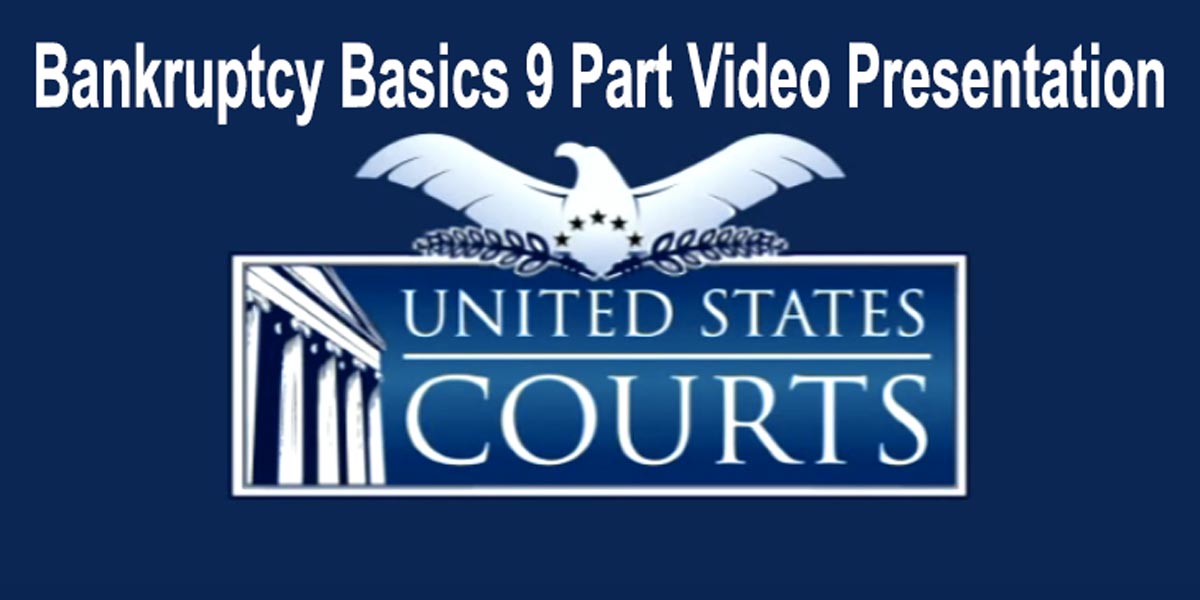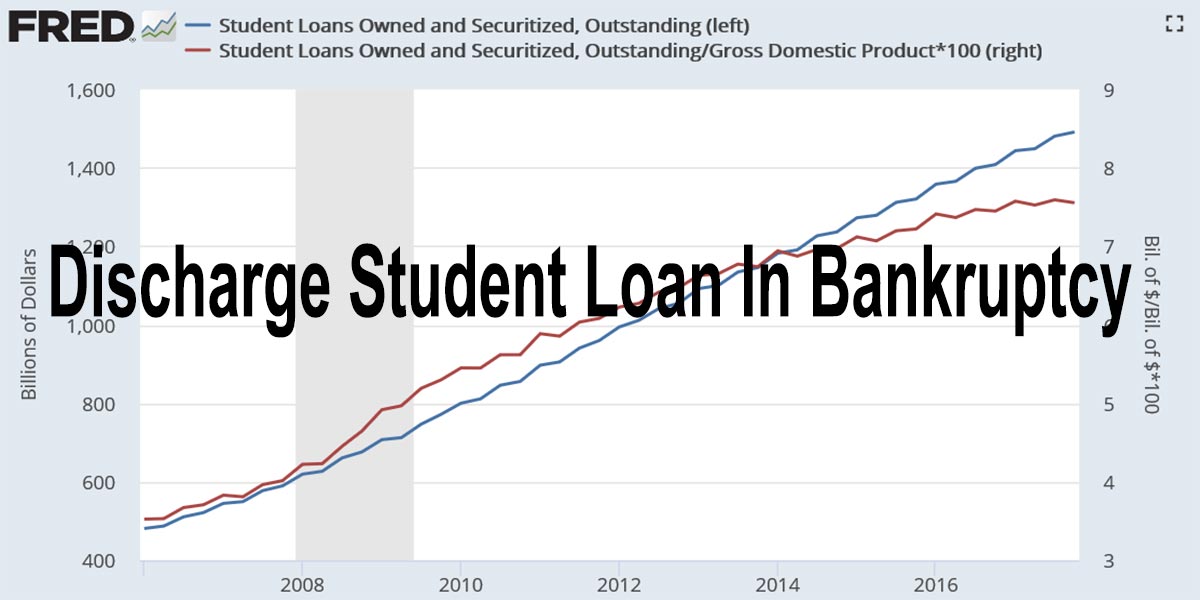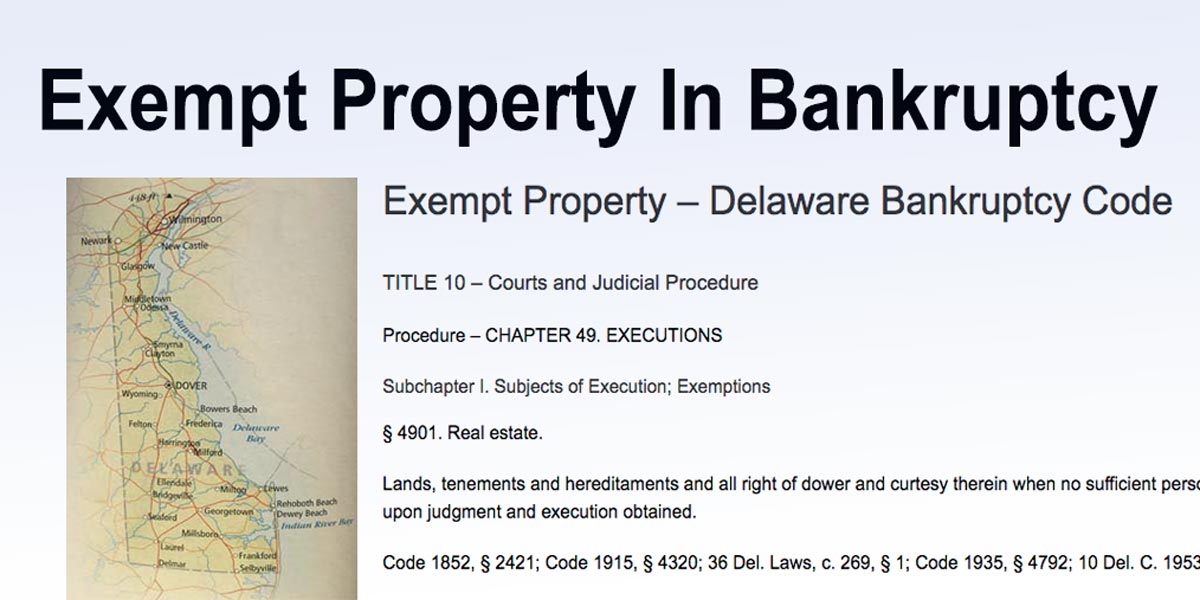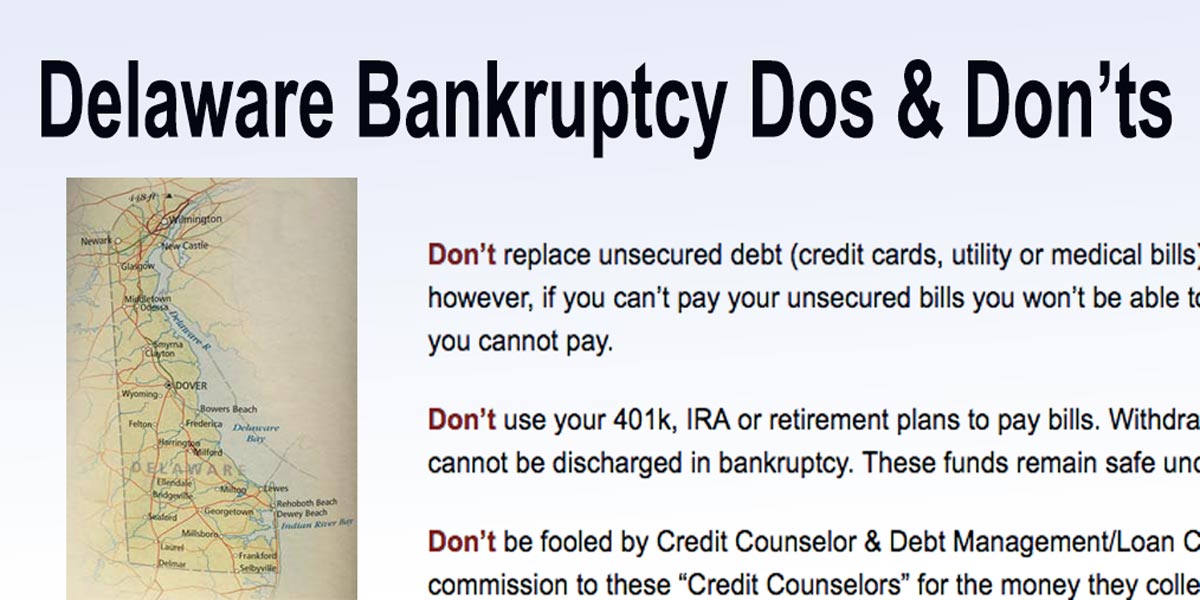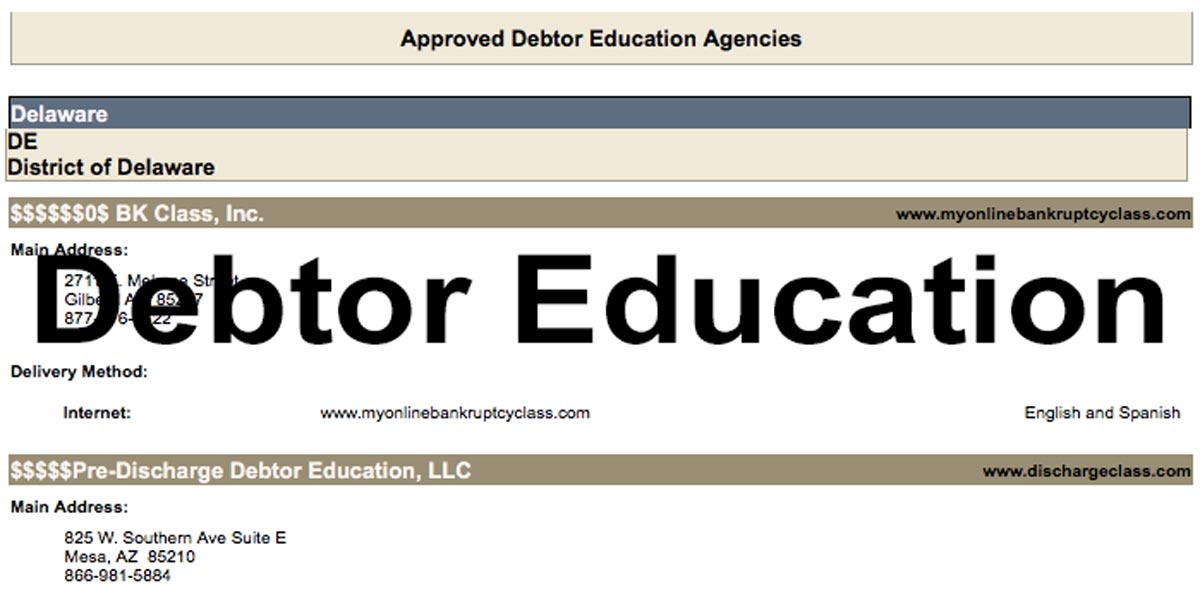341 Meeting Delaware Bankruptcy
 “A debtor’s involvement with the bankruptcy judge is usually very limited. A typical chapter 7 or 13 debtor will not appear in court and will not see the bankruptcy judge unless an objection is raised in the case. Usually, the only formal proceeding at which a debtor must appear is the meeting of creditors, which is usually held at the offices of the U.S. trustee. This meeting is informally called a “341 meeting” because section 341 of the Bankruptcy Code requires that the debtor attend this meeting so that creditors can question the debtor about debts and property.” – http://www.uscourts.gov/services-forms/bankruptcy/bankruptcy-basics/process-bankruptcy-basic
“A debtor’s involvement with the bankruptcy judge is usually very limited. A typical chapter 7 or 13 debtor will not appear in court and will not see the bankruptcy judge unless an objection is raised in the case. Usually, the only formal proceeding at which a debtor must appear is the meeting of creditors, which is usually held at the offices of the U.S. trustee. This meeting is informally called a “341 meeting” because section 341 of the Bankruptcy Code requires that the debtor attend this meeting so that creditors can question the debtor about debts and property.” – http://www.uscourts.gov/services-forms/bankruptcy/bankruptcy-basics/process-bankruptcy-basic
While some debtors find the prospect of the section 341 creditors’ meeting with the trustee to be stressful, I have found that once it is over with, the usual response from my clients is “Well, that wasn’t so bad!”
Also, it is extremely rare and unusual for any creditor to show up at your meeting to ask you questions. The trustee’s questions will vary depending on the local rules of your bankruptcy court and the trustee’s own custom. Download 341meeting-questions-de-bankruptcy pdf
Typical topics of questioning include:
• why you are filing bankruptcy
• whether you have listed all your property in your schedules and whether you have listed accurate values
• whether you have repaid any of your creditors within the three months prior to your bankruptcy
• whether you have repaid any relatives or close friends in the last year
• whether you have sold or given away any property or transferred any money in the past several years
• whether you own or have ever owned a business
• how you determined the value of your property listed in your paperwork
• whether your income is accurate in your schedules and on your means test
• whether you have dependents
• whether you are married, divorced, separated, or single
• whether you owe child support, alimony, or any other domestic support, and
• whether your monthly expenses are necessary and reasonable.


